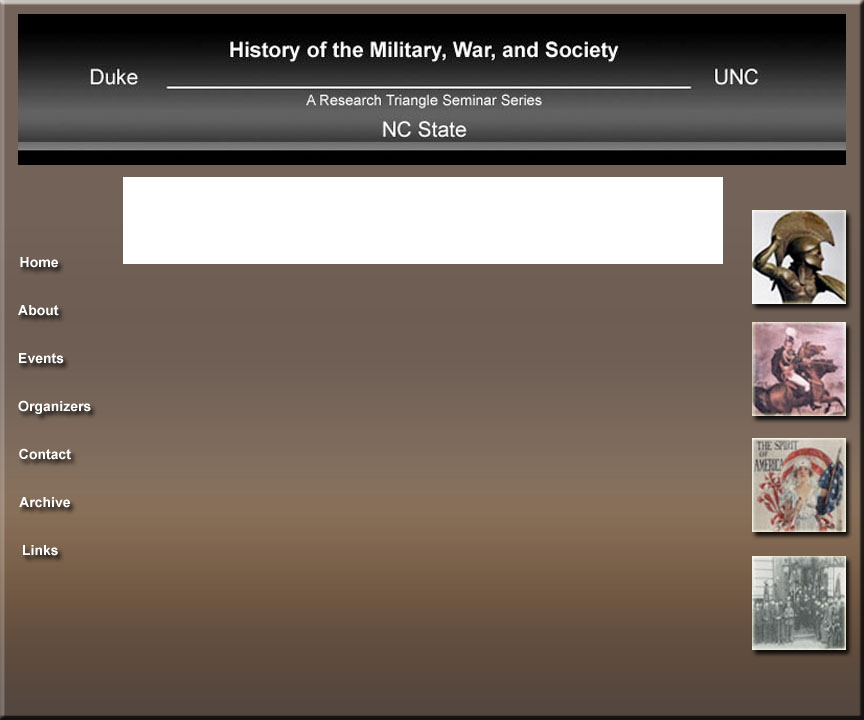
|
October 14, 2011 Andrew Byers (Duke University) “Complete Continence Is Wholly Possible”: The U.S. Army’s campaign against venereal disease during World War I and the post-war occupation of Germany represented massive, new intrusions by the American state into the sexual lives of U.S. soldiers and their French and German sexual partners. The bodies of soldiers and prostitutes were routinely inspected and, if found to be diseased, both were forcibly incarcerated and medically treated by army physicians and colluding civil authorities in France and Germany. This paper will explore the role of the state in shaping the sexual lives of individuals through the institution of a regime of sexual surveillance and policing. Byers argues that these efforts to regulate the sexual behaviors of soldiers and their sexual partners were part of a much larger “sexual economy of war” that encompassed all aspects of soldiers’ intimate lives: prostitution, venereal disease, homosexuality, sexual violence and rape, sexual morality, military families, and ideas about masculinity, among others. Without considering and intervening in all these components of the sexual economy, the U.S. Army believed that it could not effectively sustain military operations during WWI and the subsequent occupation of Germany. The experience in Europe brought with it many challenges to pre-existing notions of sexuality – and Progressive Era medical and moral reform discourses – and complicated the debates between policymakers and critics by highlighting competing conceptions of acceptable sexual behavior and demonstrating the difficulties in implementing and enforcing sexual regulations. These debates help explore the intersections between U.S. moral and social reform; concerns about disease and sexual danger; cross-cultural racial, class, and gender perceptions; soldiers’ masculinity and sexual identity; and military efficiency. Andrew Byers received his B.A. in History and Political Science from Virginia Tech in 1994 and his M.A. in National Security Studies from Georgetown University in 1996. He then worked in defense for ten years before returning to graduate school at Duke University in 2006. Co-sponsored by the Triangle Institute for Security Studies |